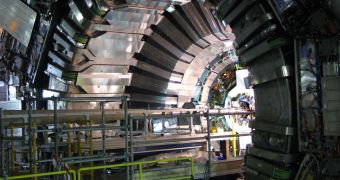Researchers at the University of Bristol, in the United Kingdom, have recently received a new grant, for developing a web portal that would enable scientists working in the developing world to calculate landslide risks and the answer to other such complex riddles.
The inspiration for this project came from the computing grid that helps the team managing the Large Hadron Collider (LHC) in processing the massive amounts of data it collects during its proton beam crashes.
The grid, known as the Worldwide LHC Computing Grid (LCG), expands from Argentina to Uzbekistan, and allows for petabytes of data to be passed on fast and effectively.
Though most people think the LHC can only play a role in particle physics – such as for instance in discovering the Higgs boson or some of the secrets associated with dark matter – experts know that that is not the case.
The machine, other than being the single largest and most complex scientific experiment ever constructed, is also helping investigators create new means of communication, and of sharing data.
The LCG is a direct testimony for this part of the LHC project, scientists say. No single computing facility in the world could ever hope to handle the massive influx of information the LHX produces.
This is precisely why the data is divided among so many computers, which work together similarly to how all the components in an electrical grid “cooperate” to provide end-users with steady access to electricity.
Researchers at the University of Bristol now want to use the same type of communications systems to produce viable engineering data for the developing world too.
They say that, for example, landslide risks could be calculated for several poor African countries, provided that experts here have access to the computational power of a computer grid.
The new web tool they were funded to develop would do just that – provide scientists on the scene with single-click access to such a precious resource.
“When people think of the LHC they think of an esoteric search for a particle [the Higgs Boson] that has never been seen before,” says UB Particle Physics Group (PPG) member and professor, Nick Brook.
“We’ve taken these technologies that have been developed to explore the unknown and tried to give them a real life, every day application,” he says.
The work is supported by a grant from the Science and Technology Facilities Council (STFC).

 14 DAY TRIAL //
14 DAY TRIAL //